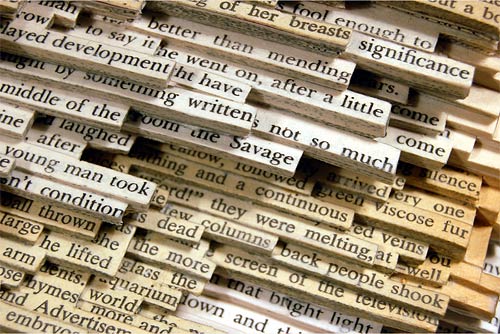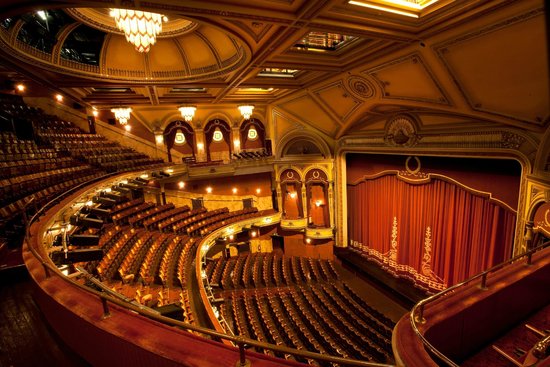Saving the Arts? What Does it Mean?

Jim Monaghan has more questions than answers about the (very welcome) funding from the UK and Scottish Government’s.
Amidst the celebrations of the UK Government’s funding package to “save the arts” it has been perhaps missed that this is a package that is for “cultural, heritage and arts”. At least 20% of the “funding” will be loans, which might be welcome in an emergency but will lead to problems further down the line when it needs to be paid back.
Scotland has been given £97M of the total package. While this is welcome on top of the £10M that the Scottish Govt announced last week, the small print, the detail and, ultimately, what is done with the money will be worth watching.
We need to see, quickly, a plan of action from the Scottish Govt. Just how much of this will go to the “cultural” and “heritage” sectors (whatever they are). Will it be millions awarded to bail out the Military Tattoo, historical sites, stately homes? Will already stretched heritage projects restoring important listed buildings be rescued? Will languages such as Gaelic and Scots (a crucial part of our culture) be given some of this package?
When that is figured out, how much will go to the national companies, the major arts organisations that are already receiving “regular” funding?
After that, what about the live music venues, a vital part of the arts, and a major employer. Many who work in this “gig” economy will have missed out on many of the support packages available during lockdown, especially tech and support staff who work in the venues.

Then there is film and TV, so many productions have stalled, been delayed or scrapped altogether over the last 4 months.
Scottish publishing, again a clear and vital part of our “culture” was already in a precarious state, will some of the bail out reach the publishers and authors?
And, of course, the question of how this funding is disseminated. Will it all go to Creative Scotland, will the Scottish Govt issue funding directly, will some go to councils?
After all these issues have been looked at just how much will reach our artists?
This announcement has been welcomed widely, and rightly so, but the answers to these questions and more will determine if we will still be celebrating in the autumn.
Bella Caledonia will be following this with interest and covering the developments as they emerge.

While nobody wants to see the loss of just one job in any industry there is one sad unfortunate fact, the Scottish Government does not have a ‘Magic-Money-Tree’ and I think that we can all agree that the weakest and most deprived in our society should be our primary concern to start with. I’ll gently remind you that many who are now looking for support voted in 2014 to reject Independence and instead opted to rely on tit-bits from the Wastemonster table, so I’ll ask the question where is the Strength of the Union now????
Many of the loudest voices demanding that scotgov spend their stretched budget to mitigate the depredations of Covid and the mismanagement of Westminster are the very people who voted to deny Scotland its autonomy in 2014. Unless these people have changed their minds, perhaps they should haud their wheesht. Hypocrisy at its finest!
How much will go to critics of the government/state/status quo? Perhaps those are the ones we really need to listen to, yet the least compatible with state funding. Possibly funding the digital sectors would be most pandemic-friendly, since many projects are successfully continuing under lockdown conditions and working from home. Science fiction as a future-looking tool (the only cultural product ranges that have envisaged pandemics as far as I know) would also be a good investment.
Do we have the right artists? What functions do we expect them to perform? Should we be focusing more on democratic elements (such as funding investigative journalism) than entertainment (distraction for the masses and niches)? Is our culture too consumption-focused, too passive, too elitist, too biased, too ineffectual at preparing us for forthcoming predicted disasters, too ethically lightweight, too personality and image-focused, too corporate-friendly, too tourism-considering, too inefficient, too stale (broadly speaking)?
Should perhaps we be funding mass participation, interactive, collective-decision-making, forward-planning cultural projects that engage at an ethical level and give proper place to planet, philosophy and systems thinking?
Arts funding in Scotland has three major strands: the SG chiefly thro Creative Scotland , local government thro Arts and Leisure Depts and private/commercial entrepreneurs. The bulk of the SG funding via CS goes to the big six, Scottish Opera, S Ballet, S National Theatre, S N Orchestra the two National Galleries and the Edinburgh Festival. What percentage goes into these “jewels” I don’t know. But the minister knows so I will ask her now.
I want to appeal for funding down to the community level thro mostly council funding. There are thousands of creative folk across a host of cultural activities striving away some for social benefits others seeking to build the capacity to engage in the creative economy. It is this capacity building that needs funding for it can lead to new enterprises employing (young) people across the length of Scotland thro social media. There was an innovative arts marketing organization that offered clever work. This aspect of moving community based creative activity towards income generating arts enterprises should find funding from the Business support arm of Gov and put less pressure on the Arts budget. Where talent interfaces with technology in the booming world of cultural industries needs Gov support from other sources of Gov. At the moment there is a bit of a muddle with Cultural Industries falling between two Ministries. When I raised the question with the SG i received two excellent responses from two Ministers. The Creative Economy versus the development of and support of the Arts needs “sorting”.
We mustn’t forget that, whatever activities end up being subsidised by government, they’ll be subsidised for economic rather than cultural reasons. Priority will be given, through the eligibility criteria that are settled upon, to those activities that give the maximal fiscal returns over those that realise only the artist’s excellence. That’s the problem with nationalising ‘the arts’ as an industry or economic sector: the art can go out the window.
Likewise, from the artist’s point of view, the current ‘crisis’ doesn’t pertain to the making of art but to the monetising of it. Perhaps the current ‘opportunity’ is for artists to find creative and innovative ways of making that aren’t dependent on the patronage of the state or the market and the exclusivities that this entails.